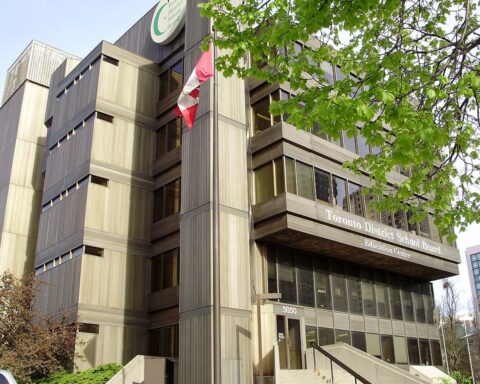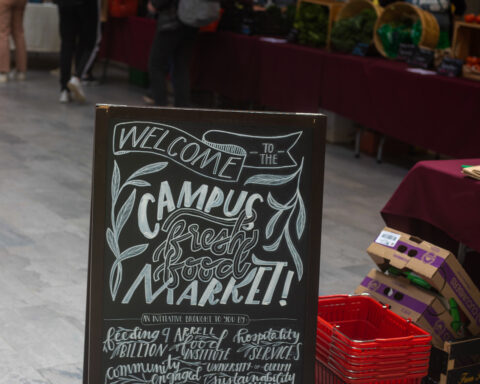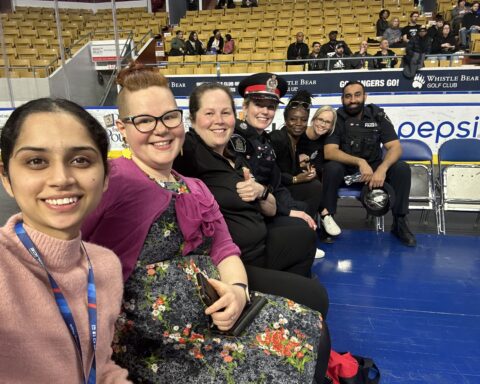“We follow everything Canadians do; we follow their schedule, follow their holidays, take out OSAP, go to Canadian schools, pay taxes. I don’t know what’s not Canadian about us, our skin?” asks Sami Khalifa.
What exactly is Canadian culture? Canada is often described as one of the most diverse nations in the world, but this multiculturalism has come at the price of a distinct national identity.
Approximately 250,000 immigrants arrive in Canada each year. Their integration into society is always a high priority, but there is arguably little focus on their children who will be the face of the country one day.
What many tend to overlook is how the children of these immigrants, who as of 2011 Stats Canada reported represent 17.4 per cent of Canada’s population, must cope with the dual identity that is subsequently created.
After speaking with a number of second-generation immigrants – defined by Stats Canada as individuals who were born in Canada and had at least one parent born outside Canada – it becomes evident that many have trouble pinpointing exactly what it means to be Canadian.
“I do not feel a [personal] connection to Canadian culture because the culture is non-existent,” says Solomon Woldemichael, a descendent of Ethiopians. “I only identify as Canadian because I lived here for much longer.”
The social and cultural alienation that many immigrants feel is something that can be expected; while finding their place within a new setting they often face challenges such as language barriers, difficulty finding employment and an overall culture shock. What many tend to overlook is how the children of these immigrants, who as of 2011 Stats Canada reported represent 17.4 per cent of Canada’s population, must cope with the dual identity that is subsequently created.
Sammy Nbarak comes from a Tanzanian family that immigrated to Canada in the late 1980s. “Even though you’re born here in Canada, your parents’ discipline came from Africa,” he shares. “Everything they taught you came from African tradition. Our lifestyle is different than what they went through, but it is [essentially] the same upbringing.”
However, this cultural rift that has formed cannot be attributed solely to parents or any household practices, as there are a number of external factors that also play a role.
Not ‘fully’ Canadian
“[Research done by the Canadian government] suggests that current and future second generation youth cohorts are more likely to grow up in neighbourhoods predominantly populated by co-ethnics,” states a 2013 Policy Horizons Canada report, Why it is Time to Take a Second Look at the Second Generation. “Thus, this research indicates that the second generation, now and in the future, will have very different experiences integrating into Canadian society than the cohorts which preceded them.”
Sami Khalifa, whose mom and dad are from Egypt and Sudan respectively, says he can relate to this first hand. “When you are younger you are surrounded by [immigrants of the same or similar backgrounds], going to the community centres, cultural events, mosques. But the older you get you don’t have as much time for that, you get more involved in the community and you are exposed to a more diverse landscape.”
“Canada’s identity is basically multiple identities [of] every race or religion. I’m still a Canadian at the end of the day. I’m more Canadian because I was raised here. Sudanese by nature, Canadian by nurture.” – Sami Khalifa
It is the experiences of second-generation youth like Khalifa that researcher Mehrunnisa Ali studies in the report “Second Generation Youth in Toronto: Are We All Multicultural?” published in 2008 by Metropolis’ Canadian Diversity.
“In Canada, as elsewhere, the concern itself is indicative of uncertainty that second generation youth may not see themselves, and may not be seen by others, as “fully” Canadian,” Ali writes. “This is despite the policy, official discourse and ideology of multiculturalism, which suggests that various cultural groups are equally valued in this country.”
Khalifa can relate. “Canada’s identity is basically multiple identities [of] every race or religion. I’m still a Canadian at the end of the day,” he says. “I’m more Canadian because I was raised here. Sudanese by nature, Canadian by nurture.”
Mosaic vs. melting pot
In the U.S. diversity is also celebrated, but to ensure that the authenticity of American culture is not compromised, the concept of a “melting pot” was adopted, as opposed to Canada’s ever changing “cultural mosaic.”
[S]ome argue that the “melting pot” is a more realistic ideology for those immigrating to a new country so as to not infringe upon the cultural rights of the established citizens.
In a 1971 speech to the House of Commons, then Prime Minister Pierre Elliott Trudeau spoke to the importance of the multicultural mosaic developing at the time in Canada. “National unity if it is to mean anything in the deeply personal sense, must be founded on confidence in one’s own individual identity,” he said. “Out of this can grow respect for that of others and a willingness to share ideas, attitudes and assumptions.”
However, some argue that the “melting pot” is a more realistic ideology for those immigrating to a new country so as to not infringe upon the cultural rights of the established citizens.
Daniel Leung, whose parents are originally from China, is a strong advocate of this. “My parents came to Canada to adopt the cultural freedoms and rights of this country. Canada is our home, we don’t try to change its culture to that of which we migrated from.”
As a whole, Canada has made great strides and is known for its multiculturalism in the international community, but there are always improvements that could be made, and understanding second-generation Canadians is one area to focus on.
As the Policy Horizons report states there is a, “need for an expanded consideration of the challenges faced by the second generation. Nevertheless, despite a variety of research findings indicating that recent immigrants and visible minorities in Canada may be disadvantaged in a number of ways, little research has been completed on what this “new” second generation may experience.”
A business enthusiast with a passion for implementing processes that improve the world around me.





